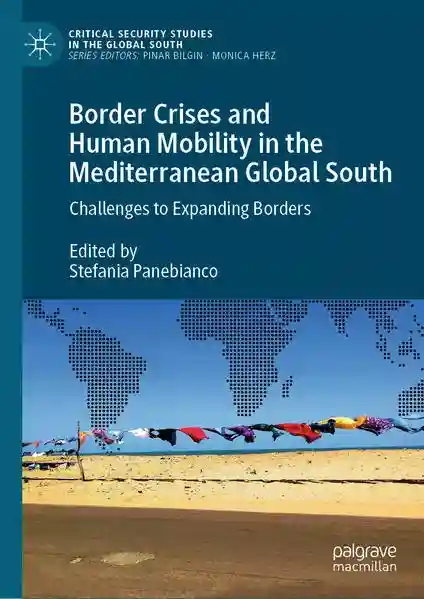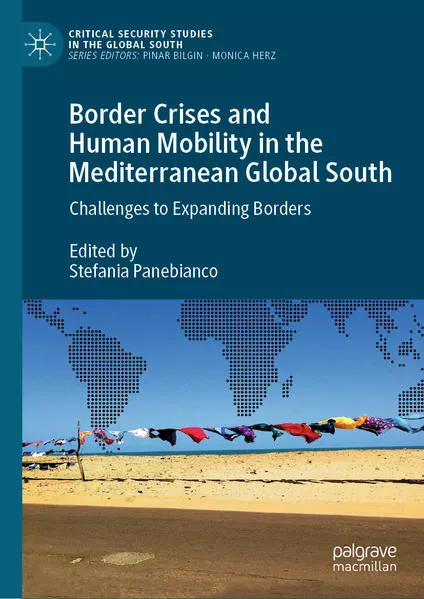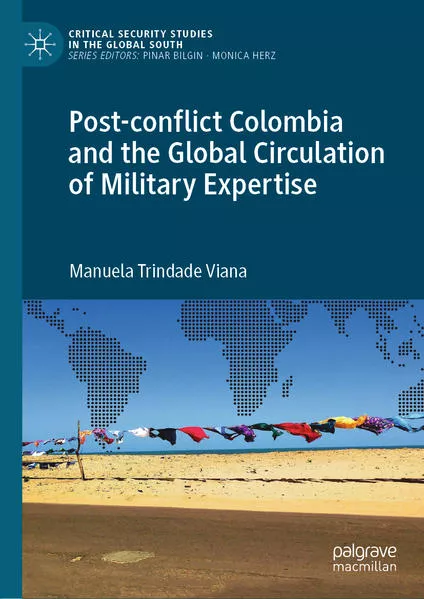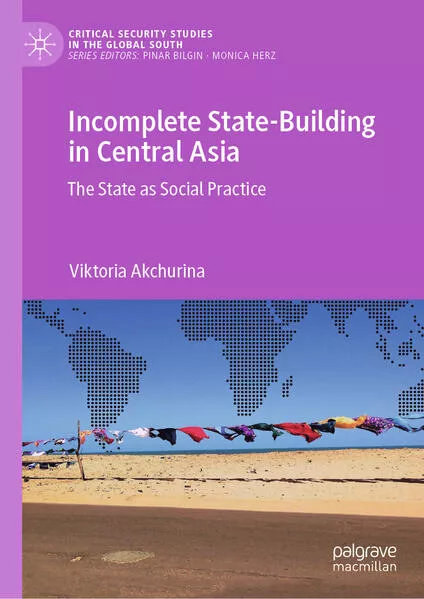Critical Security Studies in the Global South
Border Crises and Human Mobility in the Mediterranean Global South
Chronologie aller Bände (1 - 3)

Die Reihenfolge beginnt mit dem Buch "Border Crises and Human Mobility in the Mediterranean Global South". Wer alle Bücher der Reihe nach lesen möchte, sollte mit diesem Band von Stefania Panebianco beginnen. Der zweite Teil der Reihe "Border Crises and Human Mobility in the Mediterranean Global South" ist am 12.01.2022 erschienen. Die Reihe umfasst derzeit 3 Bände. Der neueste Band trägt den Titel "Incomplete State-Building in Central Asia".
- Anzahl der Bewertungen für die gesamte Reihe: 0
- Ø Bewertung der Reihe: 0
- Start der Reihe: 12.01.2022
- Neueste Folge: 21.10.2023
Diese Reihenfolge enthält 3 unterschiedliche Autoren.
- Autor: Panebianco, Stefania
- Anzahl Bewertungen: 0
- Ø Bewertung:
- Medium: Buch
- Veröffentlicht: 13.01.2022
- Genre: Politik
Border Crises and Human Mobility in the Mediterranean Global South
This book introduces a new approach to understanding security in the Mediterranean and explores current challenges at the European Union (EU) Mediterranean borders. It investigates the intertwined area at the South of the EU that we call the ‘Mediterranean Global South’ where common actions and strategies are required to face common security challenges. The book critically addresses the EU's capacity to manage its expanding borders and analyses the actors involved in providing security in the Mediterranean Global South. Specific attention is devoted to South to North migration, one of the most critical security issues of current times, deploying its effects well beyond states’ borders.
- Autor: Viana, Manuela Trindade
- Anzahl Bewertungen: 0
- Ø Bewertung:
- Medium: Buch
- Veröffentlicht: 15.05.2022
- Genre: Politik
Post-conflict Colombia and the Global Circulation of Military Expertise
By challenging more common analyses that point to the existence of a „post-conflict scenario“ in Colombia and those that resist the narrative of „success“, both of which operate within the logic of presence/absence of violence, this book proposes instead that we think of „post-conflict“ in terms of the transformation of the rules on the use of violence. The analysis unfolds in two parts: the first explores the conditions of possibility of the Colombian “success story” and the web of criteria legitimizing the “success”, as well as the silencing mechanisms allowing for Colombia to circulate internationally as a formula to be replicated in other parts of the world; the second, focuses on the historicization of the mechanisms through which new rules are transmitted among the professionals of the public force, specifically the transformations of military schools and training centers in Colombia from times of “war” to “peace”. The author argues that key to this transformation is a unique discursive articulation around the “military professional” which slides from “citizen-soldier” to “expert-soldier”.
- Autor: Akchurina, Viktoria
- Anzahl Bewertungen: 0
- Ø Bewertung:
- Medium: Buch
- Veröffentlicht: 20.10.2022
- Genre: Politik
Incomplete State-Building in Central Asia
This book is about transformation of the state and an incomplete state-building. It defies the transitology assumption of continuity, linearity and dichotomy of formal and informal in the transformation of the state. Contrary to the conventional approaches, it claims that any social order or its political scaffolding, the state, is always incomplete and we need to develop cognitive maps to better understand that incompleteness. It reflects on the social practices, processes and patterns that evolve as a non-linear result of three sets of factors: those that are historical, external, and elite-driven. Three Central Asian states - Uzbekistan, Tajikistan, and Kyrgyzstan - are examined here comparatively as case studies, as Central Asia represents an interesting terrain to challenge conventional understanding of the state. Specifically, the book captures a paradox at hand: how come three states, which made different political, economic, cultural, and social choices at the outset of their independence in the 1990s, have ended up as so-called “weak states” in the 2000s and onwards? This puzzle can be better understood through looking at the relationship among three main sets of factors that shape state-building processes, such as history, external actors, and local elites. This book applies an interdisciplinary approach, combining political anthropology, political economy, sociology, and political science. It helps conceptualize and understand social and political order beyond the “failed state” paradigm


